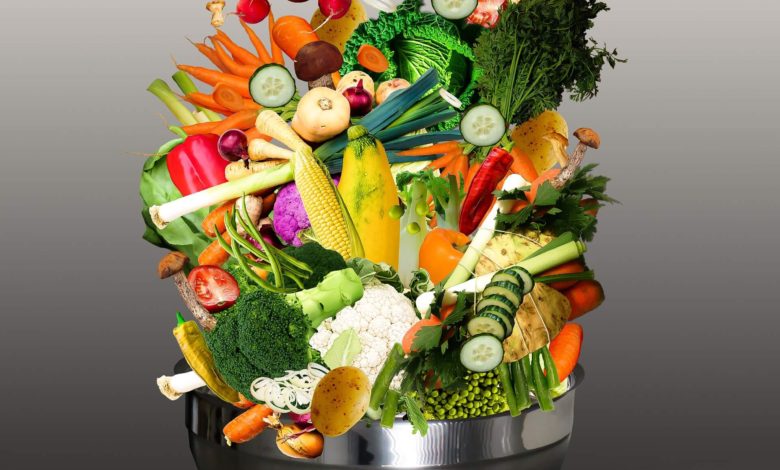Natural Blood Thinners Foods

Anticoagulant drugs cause serious side effects, and there are numerous case reports showing that the use of these drugs can lead to hospitalization for problems such as excessive bleeding. Because of their harmful potential, it is essential to knowingly use natural blood thinners as potential alternatives to these drugs. Blood clots are among the most preventable types of blood conditions. This is because they can be prevented with simple lifestyle and dietary changes. Adding natural blood thinners to the diet and healthy lifestyle routine provides effective benefits in terms of protection from the negative side effects of medications. This article contains information about blood thinners that can be used naturally.
What is a Blood Thinner?
Blood thinners are used to prevent the development of life-threatening blood clots that can cause serious health events such as heart attacks and strokes. Although blood clots are necessary during injury to prevent blood loss and promote wound healing, clot formation in the bloodstream can lead to dangerous complications. Blood-thinning medications are often prescribed to patients with certain cardiovascular conditions such as deep vein thrombosis, irregular heart rhythm, and blood vessel disease. Some herbs can act as natural blood thinners due to their anticoagulant effects.
Types of Blood Thinners
It is necessary to use blood thinners for people with certain blood or heart conditions. For most Americans with these conditions, anticoagulants are prescribed by doctors as a preventative measure. Anticoagulants or “blood thinners” are drugs used to prevent blood clotting or to allow existing clots to grow. These medicines slow down the blood clotting process. Some examples of anticoagulants include:
- Warfarin
- Heparin
- Dabigitran
- Apixaban
- Rivoraxaban
There are also antiplatelet drugs such as aspirin that prevent blood cells (or platelets) from clumping together and forming clots. Some of these medicines are synthetic substances derived from chemicals found in natural blood thinners. For example, capsicum, cinnamon, and ginger contain powerful compounds that are used to create anticoagulants.
In some cases, it is possible to use these herbs as a safer blood thinner, but people with serious concerns about future heart conditions such as a heart attack or stroke should speak to their doctor before using a natural alternative to blood thinners.
Best Natural Blood Thinners
Some natural products are more effective as blood thinners than others. These substances are:
Turmeric
Turmeric acts as a natural anticoagulant and has an anti-platelet effect. A study published in BMB Reports shows that curcumin, the beneficial polyphenol in turmeric, inhibits thrombin, a protease involved in blood clotting. Researchers concluded that daily consumption of curry spice can help maintain anticoagulant status.
Red pepper
Red pepper contains salicylate, a natural blood thinning agent that is valuable for its anti-thrombosis effects. Moreover, it contains capsaicin, which has been proven to have lipid-lowering, antihypertensive, antidiabetic and anti-obesity properties in various studies. For these reasons, cayenne pepper is often taken in capsule form to support cardiovascular health and blood circulation.
Cinnamon
Cinnamon, especially Chinese cinnamon, is rich in coumarin, which is actually a potent anticoagulant used to make warfarin. However, research suggests that long-term use of cinnamon supplements can be problematic and possibly lead to liver problems from increased coumarin consumption. Instead of using real cinnamon supplements, it’s better to consume cinnamon in your regular diet by adding it to meals and drinks.
Ginger
Like cayenne pepper, ginger contains salicylate, a chemical that has been studied for its ability to prevent thrombosis. Studies show that salicylate induces moderate anticoagulation and can prevent venous thrombosis without causing bleeding complications. As people seek more natural approaches to traditional anticoagulants, the use of ginger for its blood thinning properties is gaining popularity. However, there is research that warns users of combining oral ginger supplements and warfarin. Although data on this are considered insufficient, this should be discussed by a healthcare professional before combining treatments.
Garlic
Consuming garlic daily can be beneficial for preventing thrombosis. Studies show that garlic works as an anticoagulant. One study evaluated the safety of using garlic extract with warfarin, a commonly prescribed blood thinner. Researchers have found that garlic extract is relatively safe and does not pose a serious risk to patients receiving warfarin or oral anticoagulation therapy as long as they are monitored by a healthcare professional.
Vitamin E
Foods Vitamin E is a natural blood thinner due to its anticoagulant effects. Studies support Vitamin E has anti-coagulation activity and works as an effective blood thinner. Taking vitamin E supplements and consuming foods containing vitamin E can help prevent diseases of the heart and blood vessels. Some of the best vitamin E-rich foods are avocados, almonds, sunflower seeds, spinach, broccoli, and mango.
Exercise
Staying active helps prevent blood clots from forming, so it’s important to stay active and exercise regularly. It is widely accepted that daily physical activity is associated with improved cardiovascular health because of its positive effects on blood pressure, blood circulation, cholesterol, and insulin sensitivity. At least 30 minutes of exercise should be added to the daily program. This can include all kinds of heart-pumping movements, including uphill walking, yoga, weight lifting, and cycling. Make sure to drink plenty of water while exercising to stay hydrated, and it is also important to avoid sitting for long periods. To increase blood circulation, it is necessary to stand up and move during the day.
Helichrysum Essential Oil
While research in humans is limited, studies in mice show that the topical use of helichrysum essential oil has vasorelaxant effects, meaning that it relaxes blood-carrying vessels and can help lower high blood pressure.
How to Add Natural Blood Thinners to the Diet?
These natural blood thinners are easy to add to the diet. They can be included in meals to provide flavor and nutritional benefits. Another way to consume these herbs and spices is tea. Turmeric tea and ginger tea can be made at home and added to your daily health routine. These herbs are also available in capsule or extract forms, but if they are to be supplemented with higher doses like this one should discuss this with the doctor beforehand. In addition to adding natural blood-thinning ingredients to the diet, it is important to eat a healthy, balanced and nutrient-rich diet to reduce the risk of blood clots. Maintaining a healthy weight and reducing inflammation is very important as they support healthy cholesterol and blood pressure levels. Here are ways of what to eat to improve overall health:
- Colorful vegetables
- Dark leafy greens
- Fruits
- Legumes
- Whole grains
- Omega-3 foods
- Healthy oils
In addition to adding heart-healthy foods to the diet, it is also important to avoid foods that harm the body. This includes foods made with artificial sweeteners, sugar and refined carbohydrates, diet sodas, baked goods made with trans fats, and excessive alcohol consumption.
Risks and Side Effects
Before using natural blood thinners to prevent blood clots, talk to your healthcare provider to make sure these foods and supplements do not interfere with any of the available medications.
Is Thinning Blood Harmful?
Nutrients Like anything related to health, a balance is needed. Thinning the blood so that it does not form a clot can cause the risk of excessive bleeding. It is necessary to know well which vitamins or foods to avoid when using blood thinners. This depends on what type of blood thinner is being used, but combining anticoagulant medications with natural blood thinners such as turmeric, cinnamon, ginger, garlic, and red pepper can be problematic. Because it can thin the blood too much and therefore there may be a high risk of bleeding. Therefore, it is necessary to talk to the doctor before adding these herbs, and natural options may not be as effective as blood thinning medications.
As a result, natural blood thinners help prevent blood clots that can lead to serious health events such as heart attack or stroke. Often times, traditional anticoagulants are prescribed to prevent dangerous blood clotting, but many of these drugs have negative side effects. When appropriate and recommended by a healthcare professional, using natural blood-thinning ingredients such as cinnamon, ginger, red pepper and garlic has antithrombosis and anticoagulant effects, enhancing cardiovascular health and overall health.





